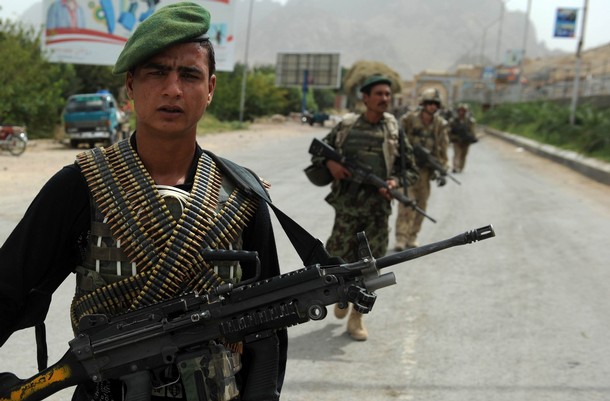
From the editors of the New York Times: We believe that the United States has a powerful national interest in Afghanistan, in depriving Al Qaeda of a safe haven on either side of the Afghanistan-Pakistan border. This country would also do enormous damage to its moral and strategic standing if it now simply abandoned the Afghan people to the Taliban’s brutalities.
But, like many Americans, we are increasingly confused and anxious about the strategy in Afghanistan and wonder whether, at this late date, there is a chance of even minimal success. …
The first test of the new counterinsurgency strategy, in Marja, population 60,000, did not go well. American Marines drove the Taliban from Marja’s center in late February, but the “government in a box” that was supposed to win over the population with security, services and honest governance didn’t arrive. Competent Afghan officials didn’t want the risk or the hardship of moving there.
Taliban fighters quickly began a campaign of intimidation and assassination. Many local residents have been too frightened to sign up for American-financed reconstruction projects. With too few Afghan security forces to hold the town, the Marines have not been able to move beyond Marja. …
We were told that Marja was a rehearsal for a major offensive this spring around Kandahar, the country’s second-largest city and the Taliban’s spiritual base. Breaking the insurgents’ hold there was supposed to send a powerful message that the tide of the war is finally changing. After Marja, though, the Kandahar offensive was postponed, reinforcing the impression of drift.
Mr. Obama has promised to review his policy this December. We agree that the “surge” and his new commander, Gen. David Petraeus, need time. But reports from the ground have been so relentlessly grim — July’s death toll of 66 American troops was the highest since the war began — that Mr. Obama needs to do a better job right now of explaining the strategy and how he is measuring progress. …
THE DEADLINE President Obama was intentionally vague last December when he said that American troops would begin to transfer out of Afghanistan by July 2011. At the time, we agreed that a deadline, so long as it was not set in stone, made sense. Americans need to know this war will not go on forever. Mr. Karzai needs to know that American protection is not open-ended. American generals and diplomats need to know that their work is being closely reviewed.
Since then, the administration has sent a host — a cacophony — of conflicting signals about the deadline, the strategy and its commitment to the war.
Americans need regular, straight talk from President Obama about what is happening in Afghanistan, for good and ill, and the plan going forward. More ambiguity will only add to the anxiety and confusion. (photo: Getty)
Image: getty%208%2013%2010%20%20Afghan%20National%20Army.jpg
